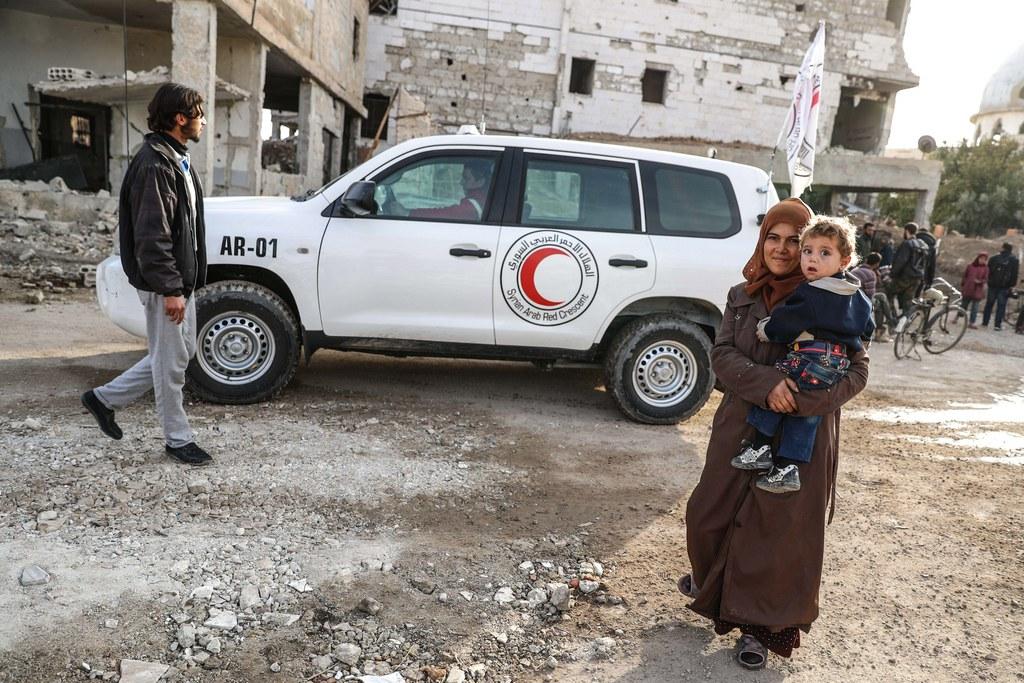
Swiss establish humanitarian aid office in Damascus

Switzerland is re-establishing a presence in Syria with a humanitarian aid office based in Damascus, according to the Federal Department of Foreign Affairs.
The office currently consists of a hotel room in the Syrian capital staffed by one diplomat, who three weeks ago received all the necessary paperwork from the country’s government to begin operations.
“Now we finally have eyes and ears in Damascus,” Manuel Bessler, delegate for humanitarian aid at the Foreign Ministry told Swiss Public Television, SRF. “It’s about concretely delivering aid together with our partner organisations. We have to make sure that the money is being used for what it’s supposed to.”
Switzerland currently supports aid projects in Syria to the tune of CHF60 million ($60.8 million) per year, largely through organisations such as the Red Crescent Society. The new office in Damascus is meant to allow the Swiss to also undertake some unilateral aid projects such as installing new water lines in war-torn areas, according to the Foreign Ministry.
Besides the European Union nations, Switzerland is now the only European country with a humanitarian representation in Syria, Bessler says.
He underlines the fact that the Swiss presence in Damascus is only intended for humanitarian purposes and is not a diplomatic representation. According to SRF, the Syrian regime had wanted Switzerland to re-open an embassy in Damascus, and the negotiations over the Swiss presence took months.
The new Swiss humanitarian officer will hire locals to help with the mission and will require the Syrian government’s permission to travel in the area, particularly to areas which continue to be rebel-held, according to SRF.
+ More on the Syrian peace talks recently held in Geneva

In compliance with the JTI standards
More: SWI swissinfo.ch certified by the Journalism Trust Initiative






























You can find an overview of ongoing debates with our journalists here . Please join us!
If you want to start a conversation about a topic raised in this article or want to report factual errors, email us at english@swissinfo.ch.